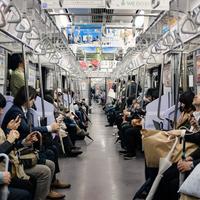福島 県 で 昔 から 続く 夏 の お祭り 「相馬 野 馬 追 」を 行う
ふくしま|けん||むかし||つづく|なつ||おまつり|あいば|の|うま|つい||おこなう
Fukushima|||a long time ago||has continued|||festival|Soma|field||chasing||
Performing "Soma Nomaoi," a traditional summer festival in Fukushima Prefecture
福島 県 で 昔 から 続く 夏 の お祭り 「 相馬 野 馬 追 」 を 行う
ふくしま|けん||むかし||つづく|なつ||おまつり|あいば|の|うま|つい||おこなう
Fukushima||||since||||festival|Soma||horse|||
Held a traditional summer festival "Soma Nomaoi" in Fukushima Prefecture
W prefekturze Fukushima odbędzie się wieloletni letni festiwal „Soma Noma Pursuit”
福島 県 の 相馬 地方 で は 、「 相馬 野 馬 追 」 と いう 夏 の お祭り を 1000 年 以上 前 から 行って います 。
ふくしま|けん||あいば|ちほう|||あいば|の|うま|つい|||なつ||おまつり||とし|いじょう|ぜん||おこなって|い ます
Fukushima|prefecture||Soma|region|||Soma||||||||festival|||more than|more than||held|exists
In the Soma region of Fukushima Prefecture, a summer festival called “Soma Nomaoi” has been held for over 1000 years.
W regionie Soma prefektury Fukushima od ponad 1000 lat organizujemy letnie festiwale o nazwie „Soma Noma Pursuit”.
8 年 前 に 大きな 地震 と 原子 力 発電 所 の 事故 が あり ました が 、 いろいろな まち で また お祭り が できる ように なり ました 。
とし|ぜん||おおきな|じしん||げんし|ちから|はつでん|しょ||じこ|||||||||おまつり|||||
years||||earthquake||atom||electric power generation|plant||accident||existed|||various|town|||festival||can be held|so that|became|
Eight years ago there was a big earthquake and an accident at a nuclear power plant, but it became possible to have a festival again in various towns.
Osiem lat temu doszło do dużego trzęsienia ziemi i awarii elektrowni jądrowej, ale teraz możemy ponownie organizować festiwale w różnych miastach.
28 日 、 武士 の 姿 を した 人 が 400 頭 ぐらい の 馬 に 乗って 、 まち の 中 を 歩いて お祭り の 会場 へ 向かい ました 。
ひ|ぶし||すがた|||じん||あたま|||うま||のって|||なか||あるいて|おまつり||かいじょう||むかい|
|samurai||appearance||mimicking|person||heads|about||||riding|town||middle||walking|festival||festival site||toward|
On the 28th, a samurai-speaking man rode about 400 horses and walked through the town to the festival venue.
28\. osoba o wyglądzie samurajów wzięła konia około 400 osób i przeszła do miasta i udała się do miejsca festiwalu.
会場 に 着いた あと 、 よろい と かぶと を つけた 人 たち が 馬 に 乗って 競走 する 「 甲 冑 競馬 」 が あり ました 。
かいじょう||ついた|||||||じん|||うま||のって|きょうそう||こう|ちゅう|けいば|||
venue||arrived||armor||helmet||put on||people||||mounted|race||||horse racing|||
After arriving at the venue, there was an “Armor Horse Race” where people wearing helmets and helmets raced on horses.
Po przybyciu na miejsce odbył się „Kara Horse Racing”, w którym ludzie z mundurami i obcasami ścigali się na koniach.
その あと 「 神 旗 争奪 戦 」 と いう 行事 が あり ました 。
||かみ|き|そうだつ|いくさ|||ぎょうじ|||
||||battle|battle|||event|||
After that, there was an event called “God Flag Battle”.
Potem nastąpiło wydarzenie o nazwie „God Flag Battle”.
花火 と 一緒に 旗 が 空 に 上がって 、 馬 に 乗った 大勢 の 人 たち が 落ちて くる 旗 を ほか の 人 より 早く 取ろう と します 。
はなび||いっしょに|き||から||あがって|うま||のった|おおぜい||じん|||おちて||き||||じん||はやく|とろう||し ます
fireworks||together with|flag||sky||rising|||got on|a lot of people|||||falling||flag||other||||sooner than|try to take||
Along with the fireworks, the flag rises into the sky, and many people on the horse try to take the falling flag sooner than others.
Flaga wznosi się w niebo z fajerwerkami, a duża liczba ludzi na koniach próbuje podnieść spadające flagi wcześniej niż inni.
旗 を 取る こと が できた 人 は 大きな 声 を 出して 喜び ました 。
き||とる||||じん||おおきな|こえ||だして|よろこび|
|||||was able to||||||shouted|joy|
Those who were able to take the flag were rejoicing out loud.
Ci, którzy mogli wziąć flagę, byli zachwyceni głośnym głosem.
旗 を 取った 男性 は 「 また 来年 も 必ず 旗 を 取りたい と 思います 」 と 話して い ました 。
き||とった|だんせい|||らいねん||かならず|き||とり たい||おもい ます||はなして||
||took|man||||||flag||want to take||I think||talking||was talking
The man who took the flag said, “I will definitely take the flag again next year.”

